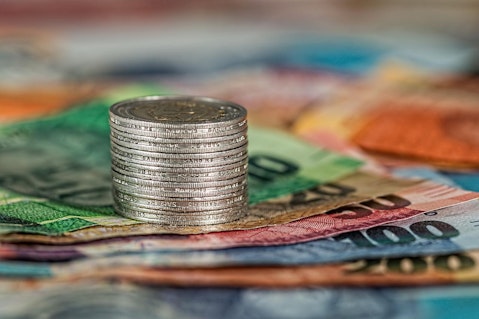In this article, we discuss some of the best dividend stocks with over 7% yield according to hedge funds.
High dividend yields are attractive. They show the potential income an investor can earn from dividends compared to the stock’s price. That said, financial experts have always advised investors to stay away from yield traps, as high yields often signal financial trouble. This is possibly true, but not certain. Various reports have shown how dividend stocks outperformed other asset classes over the years. Newton Investment Management published a report on the subject and revealed that high-yielding dividend stocks outperformed the broader market during high inflationary periods from 1940 to 2021. The report also showed that investment portfolios with high-yield dividend stocks outperformed those with low or zero-dividend stocks in terms of value-weighted performance. High-yield portfolios surpassed the performance of low-yield ones by 199 basis points and zero-yield portfolios by 330 basis points.
That said, high yields should fall within a certain range. For example, analysts generally consider yields between 3% to 7% to be healthy. The health of dividend stocks is generally determined by their cash flow generation and dividend growth over time. Investors prefer stocks that don’t just offer high yields but also maintain or consistently increase their payouts, rather than cutting them frequently. Some of the best dividend stocks like Altria Group, Inc., Verizon Communications Inc., and British American Tobacco p.l.c. boast above-average dividend yields but these companies also hold strong dividend growth streaks.
An American finance company, MSCI also published a detailed report on the historical superior returns of high-yielding stocks. The report mentioned that the high dividend yield strategy excelled in total return and showed lower volatility over the 20 years ending in 2019. It surpassed the basic yield selection by over 100 basis points annually and had 1.3 percentage points less volatility. This approach proved especially resilient during times of economic and market stress, such as the Global Financial Crisis.
While high-dividend stocks are very popular, our research indicates that combining high yields with dividend growth can lead to better returns over time. The High Dividend Growth Index, which tracks the performance of companies with at least five consecutive years of dividend growth with an average yield of 3%, delivered an annual average return of 11.94% from 2010 to 2022, compared with an 11.88% return of the broader market. The index’s dividend growth also exceeded the US long-term inflation rate at 13.8%. The index is up by 4.54% this year so far and its 12-month return came in at 16.4%, as of the close of May 28.
Apart from regular investors, elite money managers are also piling into high-yielding dividend stocks. In this article, we will take a look at some of the best dividend stocks with over 7% yield according to hedge funds.

Image by Steve Buissinne from Pixabay
Our Methodology:
For this list, we scanned Insider Monkey’s database of 920 hedge funds as of Q1 2024 and picked dividend stocks that have yields above 7%, as of May 28. The stocks are ranked in ascending order of hedge fund investors having stakes in them. Why are we interested in the stocks that hedge funds pile into? The reason is simple: our research has shown that we can outperform the market by imitating the top stock picks of the best hedge funds. Our quarterly newsletter’s strategy selects 14 small-cap and large-cap stocks every quarter and has returned 275% since May 2014, beating its benchmark by 150 percentage points. (see more details here).
10. NextEra Energy Partners, LP (NYSE:NEP)
Number of Hedge Fund Holders: 18
Dividend Yield as of May 28: 10.48%
NextEra Energy Partners, LP (NYSE:NEP) is a Florida-based master limited partnership (MLP) that specializes in the acquisition of clean energy projects. On April 25, the company declared a 1.4% hike in its quarterly dividend to $0.8925 per share. It has been growing its dividends every quarter since 2015, which makes NEP one of the best dividend stocks on our list. The stock has a dividend yield of 1.048%, as of May 28.
In the first quarter of 2024, NextEra Energy Partners, LP (NYSE:NEP) reported revenue of $257 million, up from $254 million during the same period last year. The company’s operating cash flow for the quarter came in at $78 million. It expects to grow its dividend at an annual average growth rate of between 5% and 8% through 2026, aiming for a consistent growth rate of 6%.
At the end of Q1 2024, 18 hedge funds tracked by Insider Monkey reported having stakes in NextEra Energy Partners, LP (NYSE:NEP), which remained unchanged from the previous quarter. These stakes have a collective value of over $148.7 million.
NextEra Energy Partners, LP (NYSE:NEP) benefits from its parent company, NextEra Energy, Inc. (NYSE:NEE), which is one of the largest utility companies in the US. The MLP mainly profits from the acquisition of renewable energy assets through drop-downs from its parent company. The sale of these clean energy assets allows the company to diversify its portfolios and engage in growth opportunities. This helps the company with its cash flow generation, enabling it to offer optimistic forecasts regarding its distribution per unit in the coming years. Moreover, with growing investments in renewable energy, the stock could generate sustainable returns for investors. Since the start of 2024, NEP has surged by 10.37%, as of the close of May 28.
However, the stock has a trailing twelve-month (TTM) P/E ratio of 25.5, compared with a 14.55 TTM P/E ratio of Chevron Corporation (NYSE:CVX). CVX has gained over 79% since Warren Buffet started investing in the company during the third quarter of 2020, whereas NEP has declined by over 37% during this period. While we might not be inclined to invest heavily in NEP based on its current returns, the company’s growth prospects make it a consideration for investment.
9. British American Tobacco p.l.c. (NYSE:BTI)
Number of Hedge Fund Holders: 19
Dividend Yield as of May 28: 9.56%
British American Tobacco p.l.c. (NYSE:BTI) is a British multinational company that specializes in the manufacturing and sales of cigarettes, tobacco, and other related products. The tobacco industry has always shown resilience, even during the pandemic of 2020. Even today, companies are bringing out alternatives like vaping as substitutes for tobacco in the face of strict regulations and declining smoking rates. This sets BTI apart from its peers as the company is actively taking steps to introduce ‘reduced risk products’ in the industry. Recently, the company mentioned that it follows the principles of responsible marketing and ensures that its products are intended for adult customers. Bireme Capital initiated its position in British American Tobacco p.l.c. (NYSE:BTI) during the fourth quarter of 2023 due to the company’s strong growth prospects. Here is what the firm has to say BTI in its Q4 2023 investor letter:
“We initiated a new long position in British American Tobacco p.l.c. (NYSE:BTI). While BAT is in the consumer staples industry like some of our shorts, the valuation is vastly different. After falling 25% this year, BAT trades at a mere 6x earnings, and is one of the cheapest stocks we own. This appears to be a case of social conformity bias, as ESG-blinded investors are ignoring the company’s brands, valuation, and strength in next-generation products.
BAT was formed in 1902 and owns some of the most beloved tobacco brands in the world, including Camel, Lucky Strike, Dunhill, and Newport. While tobacco use is on the decline, these brands (via annual price increases), generate a stable 8b GBP in profits. We think the stock is undervalued based on the earnings power of these brands alone…” (Click here to read the full text)
British American Tobacco p.l.c. (NYSE:BTI), one of the best dividend stocks on our list, currently offers a quarterly dividend of $0.7431 per share, having raised it by 6.1% in February this year. As of May 28, the stock has a dividend yield of 9.56%.
As of the close of Q1 2024, 19 hedge funds in Insider Monkey’s database held stakes in British American Tobacco p.l.c. (NYSE:BTI), down from 22 in the previous quarter. The consolidated value of these stakes is over $588.6 million. Ken Griffin was bullish on the stock during the quarter, boosting its stake in the company by 464%.
The stock is up by 2.52% this year so far. BTI trades at nearly 7x of its earnings, which makes it a cheap stock in the consumer staples industry. This is where we usually tell our readers that while we acknowledge the potential of BTI, our conviction lies in the belief that AI stocks hold greater promise for delivering higher returns, and doing so within a shorter timeframe. Then we tell them that if they are looking for an AI stock that is more promising than NVIDIA but that trades at less than 5 times its earnings, they should check out our report about the cheapest AI stock. It is true that we have been bullish about AI stocks before everyone else was bullish and we have uncovered an extremely cheap AI stock, however, we also believe BTI is a hidden gem dividend stock because when investors go to BTI’s Yahoo Finance ticker page, all they see is a stock with -$8.21 loss and a P/E ratio of N/A. It isn’t surprising that they are worried about BTI’s ability to make the quarterly dividend payments.
Here is the hidden truth. BTI is a major player in a declining industry. If you live in the US, you won’t see many people smoking and their numbers are dwindling every year. There are more smokers overseas, especially in Europe and Asia (see 20 Most Smoking Countries in Asia), however, the number of smokers is declining everywhere. When a cash rich company like BTI falls in a situation like this, they try to buy their way out by making stupid investments that destroy shareholder value. For example, Altria invested (we call it “wasted”) $12.8 billion on a 35% stake in Juul 6 years ago. BAT did even worse with its “Build a Smokeless World” investment strategy which was focused on transitioning from traditional combustible tobacco products to reduced-risk alternatives. The end result was a “£27.6 billion non-cash impairment charge mainly related to our U.S. business”. In layman’s term a non-cash impairment charge of £27.6 billion is an admission of more than $35 billion wasted on expensive acquisitions and investments.
The good news is that the price was paid by the company’s previous shareholders, not new shareholders. And some of those old shareholders sold their shares after the write-down which caused the BTI’s stock price fall from $43 to $30 today. What those shareholders didn’t recognize was that British American Tobacco’s “less harmful products” like Vuse, the top e-cigarette brand in the U.S., and Velo nicotine pouches, generated one sixth of the company’s revenue in 2023. Remarkably, this segment also achieved profitability, delivering an impressive (but seemingly unnoticeable) $500 million in profit in 2023. This tells us that BTI’s $35 billion write-down is really a “kitchen-sinking”. This is a practice used by companies that disclose a large number of negative items all at once. This may include write-downs, impairments, restructuring costs, and other adverse financial news. The idea is to “clear the decks” and get all the bad news out in a single quarter, allowing the company to move forward with a cleaner slate. This can sometimes be seen as a strategy to reset expectations and manage future investor sentiment, as it consolidates most of the bad news into one period rather than spreading it out over multiple quarters.
If you haven’t clearly understood the above paragraph, please reread again. This implies that this is the right time to finally invest in BTI. We believe over the next quarters you will not only be able to collect a nearly 10% dividend, BTI will probably exceed the rock-bottom expectations and its stock price will gradually recover back to $40. So, in our opinion, BTI is one of the best short-term investments a dividend investor can make. You can buy the stock now at $31, or you can wait, get the confirmation at its next earnings call, and buy the stock at $34 then. By the way, if you don’t want to miss out on our next BTI like investment opportunities, you can subscribe to our free enewsletter on our website and get email alerts.
8. BCE Inc. (NYSE:BCE)
Number of Hedge Fund Holders: 22
Dividend Yield as of May 28: 8.70%
BCE Inc. (NYSE:BCE) is a Canadian telecommunications company that offers a wide range of wireless, internet, and television services. In the first quarter of 2024, the company’s cash position remained strong with its operating cash flow coming in at $1.13 billion. During the quarter, the company generated $85 million in free cash flow. Its revenue for the quarter fell by 0.7% on a year-over-year basis at C$6.01 billion.
On May 2, BCE Inc. (NYSE:BCE) declared a quarterly dividend of C$0.9975 per share, which was in line with its previous dividend. Overall, the company has raised its payouts for 14 years in a row, which makes BCE one of the best dividend stocks on our list. The stock’s dividend yield on May 28 came in at 8.70%.
The number of hedge funds tracked by Insider Monkey owning stakes in BCE Inc. (NYSE:BCE) grew to 22 in Q1 2024, from 19 in the previous quarter. These stakes are valued at over $114 million.
With the growing momentum of 5G technology, BCE Inc. (NYSE:BCE) is reaping ongoing benefits by consistently investing in this area. However, due to high interest rates and increased competition in the industry, the stock is currently experiencing negative returns. Since the start of 2024, BCE is down 14.83%. On the other hand, with the trailing twelve-month P/E ratio of 23.8, the stock is beginning to appear relatively undervalued. That said, its dividend yield remains a highlight for investors considering the stocks. D. E. Shaw remained bullish on the stock during q1 2024, boosting his position on the company by 72%.
7. TC Energy Corporation (NYSE:TRP)
Number of Hedge Fund Holders: 23
Dividend Yield as of May 28: 7.32%
TC Energy Corporation (NYSE:TRP) is a natural gas company, based in Canada. The company operates one of the largest networks of natural gas pipelines in North America. It currently offers a quarterly dividend of C$0.96 per share, having it raised by 3.2% in February this year. Through this increase, the company stretched its dividend growth streak to 24 years, which makes TRP one of the best dividend stocks on our list. The stock has a dividend yield of 7.32%, as of May 28.
With a share price of $37.53 as of May 28, TC Energy Corporation (NYSE:TRP) has a trailing twelve-month P/E ratio of around 19.6, which indicates that it is currently trading below its historical valuation. The stock’s current valuation provides an opportunity for investors to gain additional returns from price appreciation over the next few years. In addition, as pipeline companies operate under long-term contracts, they are much less impacted by short-term changes in oil and gas prices or conditions of the broader market. This shows that TC Energy Corporation (NYSE:TRP) offers a certain level of protection against economic volatility. In the first quarter of 2024, the company achieved record deliveries on its natural gas pipeline systems.
Insider Monkey’s database of Q1 2024 indicated that 23 hedge funds held stakes in TC Energy Corporation (NYSE:TRP), up from 19 a quarter earlier. These stakes are worth nearly $115 million in total. Paul Marshall And Ian Wace remain bullish on the stock during the quarter, increasing their stake in the company by 929%.
6. Enterprise Products Partners L.P. (NYSE:EPD)
Number of Hedge Fund Holders: 23
Dividend Yield as of May 28: 7.34%
Enterprise Products Partners L.P. (NYSE:EPD) is next on our list of the best dividend stocks with over 7% yield. The Texas-based midstream natural gas and crude oil pipeline company has been rewarding shareholders with growing dividends for the past 25 years. Currently, it pays a quarterly dividend of $0.515 per share and has a dividend yield of 7.34%, as recorded on May 28.
Enterprise Products Partners L.P. (NYSE:EPD)’s cash position remained strong in the first quarter of 2024 with its distributable cash flow of $1.9 billion. The company generated $2.1 billion in adjusted cash flow from operations (CFFO), up from $2 billion during the same period last year. Its dividend payments appear secure, given that its payout ratio was 56% of its Adjusted (CFFO).
Following a period of decline, the energy sector has regained momentum this year. Enterprise Products Partners L.P. (NYSE:EPD) is consistently taking advantage of the growing production of both crude oil and natural gas. The company reported pipeline volumes for natural gas liquids, crude oil, refined products, and petrochemicals amounted to 7.4 million barrels per day (BPD), up from 7.1 million BPD in the prior year period. Moreover, Enterprise Products Partners L.P. (NYSE:EPD) is continually dedicating resources to follow growth opportunities. For 2024 and 2025, the company expects its growth capital investments within the range of $3.25 billion to $3.75 billion. The stock has a forward P/E ratio of 10.54, compared with an industry average of 12.13. Given its recent strong results and solid earnings outlook, we consider EPD undervalued at its current share price.
According to Insider Monkey’s database of Q1 2024, 23 hedge funds held stakes in Enterprise Products Partners L.P. (NYSE:EPD), the same as in the previous quarter. The consolidated value of these stakes is nearly $310 million.
5. The Western Union Company (NYSE:WU)
Number of Hedge Fund Holders: 29
Dividend Yield as of May 28: 7.37%
The Western Union Company (NYSE:WU) is a Colorado-based financial services company that mainly specializes in payment services. The company seems to be in a favorable position to experience growth as immigration rates increase and globalization advances. In the first quarter of 2024, the company reported a 6% year-over-year growth in revenue of its Consumer Money Transfer segment. In addition, its transactions also increased by 6% from the same period last year. The stock is currently trading at approximately 8 times its earnings over the past year, which is cheap for the company with stable cash flows and solid dividend yield. The stock declined by over 9% in the fourth quarter of 2023 due to various macroeconomic challenges. Ariel Investments highlighted some reasons for the stock’s drop during the quarter in its Q4 2023 investor letter.
“Global leader in money transfer services, The Western Union Company (NYSE:WU), traded lower in the period, despite the delivery of solid earnings and a subsequent raise in full year guidance. These results were aided by regulatory change in Iraq and margin expansion in the retail business. Meanwhile, management continues to make progress executing on its Evolve 2025 Strategy and continues to return capital to shareholders through dividends and share repurchases. Although the company anticipates the macroeconomic environment will continue to slow, it reminded investors remittances have proved resilient in prior periods of economic contraction. At current levels, WU is trading at a discount to our estimate of private market value.”
That said, the stock has bounced back since then and has gained 4.70% in 2024 so far. Western Union faces intense competition from fintech companies like PayPal, Square, and others that offer faster, cheaper, and more convenient digital payment solutions. The rise of blockchain and cryptocurrency-based transfer services also poses a significant threat to traditional money transfer businesses. While we acknowledge the allure of Western Union to dividend investors, our conviction lies in the belief that AI stocks hold greater promise for delivering higher returns, and doing so within a shorter timeframe. If you are looking for an AI stock that is more promising than NVIDIA but that trades at less than 5 times its earnings, check out our report about the cheapest AI stock.
On May 17, The Western Union Company (NYSE:WU) declared a quarterly dividend of $0.235 per share, which was in line with its previous dividend. It is one of the best dividend stocks on our list as the company has been paying regular dividends to shareholders since 2006. The stock’s dividend yield on May 28 came in at 7.37%.
As of the end of March 2024, 29 hedge funds tracked by Insider Monkey held stakes in The Western Union Company (NYSE:WU), down from 30 in the preceding quarter. The total value of these stakes is over $418.2 million. Ken Griffin was one of the company’s leading stakeholders in Q1, increasing his position in the company by 169%.
4. Xerox Holdings Corporation (NASDAQ:XRX)
Number of Hedge Fund Holders: 31
Dividend Yield as of May 28: 7.18%
Xerox Holdings Corporation (NASDAQ:XRX) is an American tech company that specializes in the development and manufacturing of print and digital document services and products. The company currently pays a quarterly dividend of $0.25 per share. With a dividend yield of 7.18% as of May 28, XRX is one of the best dividend stocks on our list.
Xerox Holdings Corporation (NASDAQ:XRX) reported first-quarter 2024 earnings that fell short of expectations, primarily due to ongoing structural changes within the company. The company’s core print business fell by 12.6% on a year-over-year basis at $1.43 billion. However, the management is confident that it has the right team and strategy in place to successfully reinvent the company and achieve its adjusted operating income targets. The management has also reiterated its guidance for FY24 and expects its annual revenue to decline by 3% to 5% in constant currency. The stock is currently trading at a forward P/E ratio of 3.63, which shows that it is too cheap at this price. The valuation may decline further as the market reacts negatively to the company’s earnings miss. XRX is down by 23.7% since the start of 2024. Shares jumped by around 1% on April 2, when the company announced its partnership with PBS Group in Peru and Ecuador.
The number of hedge funds tracked by Insider Monkey owning stakes in Xerox Holdings Corporation (NASDAQ:XRX) grew to 31 in Q1 2024, from 25 in the previous quarter. These stakes are valued at over $88.3 million in total.
3. Enbridge Inc. (NYSE:ENB)
Number of Hedge Fund Holders: 32
Dividend Yield as of May 28: 7.43%
Enbridge Inc. (NYSE:ENB) is a Canada-based pipeline transportation and crude oil company. The company reported a strong cash position in the first quarter of 2024, with an operating cash flow of C$3.2 billion and free cash flow of C$3.5 billion, up 9% from the same period last year. It has always remained committed to its shareholder return as it distributed approximately $34 billion to investors through dividends over the past five years.
Enbridge Inc. (NYSE:ENB), one of the best dividend stocks on our list, has been growing its dividends consistently for the past 29 years. The company offers a quarterly dividend of C$0.915 per share and has a dividend yield of 7.43%, as of May 28.
Enbridge Inc. (NYSE:ENB) is currently trading at a forward P/E ratio of 16.92, slightly lower than NextEra Energy Partners, LP (NYSE:NEP)’s forward P/E ratio of 18.92. This suggests that investors are valuing Enbridge’s future earnings somewhat more conservatively compared to NEP. In the past 12 months, the stock gained nearly 1%. Though the stock has underperformed the broader market over the past year, its dividend growth makes it a reliable investment. In its recent earnings report, the company announced that it expects to pay approximately $40 billion to shareholders through dividends over the next five years. In addition, the company is well-positioned to benefit from the boon in Canada’s energy sector. The S&P/TSX Composite Energy Index is up 16.72% this year so far, outperforming the broader market, as of May 29.
Enbridge Inc. (NYSE:ENB) was a part of 32 hedge fund portfolios at the end of Q1 2024, up from 28 in the previous quarter, as per Insider Monkey’s database. The stakes owned by these hedge funds have a total value of nearly $260 million.
2. Whirlpool Corporation (NYSE:WHR)
Number of Hedge Fund Holders: 33
Dividend Yield as of May 28: 8.07%
Whirlpool Corporation (NYSE:WHR) is a Michigan-based home appliance company that offers a wide range of related products and services to its consumers. The company has a long history of paying dividends to shareholders, which makes it one of the best dividend stocks on our list. It currently offers a quarterly dividend of $1.75 per share and has a dividend yield of 8.07%, as of May 28.
In the first quarter of 2024, Whirlpool Corporation (NYSE:WHR) experienced strong performance in its Global Small Domestic Appliances (SDA) segment and international operations. In addition, the company announced an increase in prices of Major Domestic Appliances (MDA) in North America through promotional programs. These adjustments are aligned with the value of its products and brands to counter persistent inflation. That said, the company’s revenue has shown a decline compared to its peers, falling by 3.42% on a year-over-year basis. The stock has a forward P/E of 8.04, compared with an industry median of 12.2, which means that it has a lower valuation compared to its industry peers. In Q1 2024, David Tepper exited his position in the company. The stock is down by over 24% this year so far. Despite its negative returns and falling revenue, we think that now would be a great time to buy WHR considering its current valuation and the company’s commitment to consistent dividends in the first and second quarters of 2024.
As of the end of Q1 2024, 33 hedge funds, growing from 30 in the previous quarter, owned stakes in Whirlpool Corporation (NYSE:WHR), as per Insider Monkey’s database. The consolidated value of these stakes is over $675.4 million.
1. Altria Group, Inc. (NYSE:MO)
Number of Hedge Fund Holders: 38
Dividend Yield as of May 28: 8.62%
Altria Group, Inc. (NYSE:MO) ranks first on our list of the best dividend stocks to buy now. The Virginia-based tobacco company has raised its dividends for 54 consecutive years, with its current quarterly payout of $0.98 per share. The stock has a dividend yield of 8.62%, as of May 28. In the first quarter of 2024, the company reported a strong cash position, returning $1.7 billion to shareholders through dividends.
Altria Group, Inc. (NYSE:MO)’s performance has remained close to that of the broader market this year so far, returning 11.23%. In the last 5 years or so, the stock has underperformed the broader market by a wide margin. However, due to its strong dividend history and impressive dividend yield, investors are loyal to the stock. The stock’s forward P/E ratio currently comes in at 9.16, compared with 21.01 for the broader market, which shows that MO is undervalued relative to the broader market. Despite having strong credentials, the stock could be impacted by the declining volume of cigarettes. That said, Andvari Associates has given a positive outlook on Altria Group, Inc. (NYSE:MO) in its first quarter 2024 investor letter:
“Our second example of a high-yielding security is the stock of Altria Group, Inc. (NYSE:MO). Before we get into the details of why we started a position in Altria, a brief history is in order. The company was formerly known as Philip Morris before rebranding to Altria in 2003. Cynically, the rebranding was to minimize the negative attention from its tobacco business. However, the company also owned Kraft Foods and Miller Brewing, so it was logical to reflect its status as a conglomerate. Since rebranding, Altria has slowly “de-conglomerated”. It spun out Kraft in 2007. It spun out Philip Morris International in 2008. In 2021, it sold its Ste. Michelle Wine Estates business. Finally, last month Altria announced it is selling part of its 10% ownership in Anheuser-Busch InBev (BUD)
Andvari has followed Altria since we began our investment career. Profitability is extraordinary and the business requires minimal capital expenditures. Despite the volume of cigarettes having steadily declined—a great thing for our population health—Altria has still managed to grow revenues and profits with regular price increases…” (Click here to read the full text)
We also agree with the firm, as the company’s rebranding and evolving business models have benefitted it over the years. Altria Group, Inc. (NYSE:MO) spun out Philip Morris International Inc. (NYSE:PM) in 2008 and since then, the stock has returned over 106%.
Insider Monkey’s database of Q1 2024 indicated that 38 hedge funds owned stakes in Altria Group, Inc. (NYSE:MO), compared with 42 in the previous quarter. These stakes are collectively valued at over $823.3 million. Among these hedge funds, Harris Associates was the company’s leading stakeholder in Q1.
If you are looking for an AI stock that is as promising as Microsoft but that trades at less than 5 times its earnings, check out our report about the cheapest AI stock.
READ NEXT: Michael Burry Is Selling These Stocks and Jim Cramer is Recommending These Stocks.
Disclosure: None.





